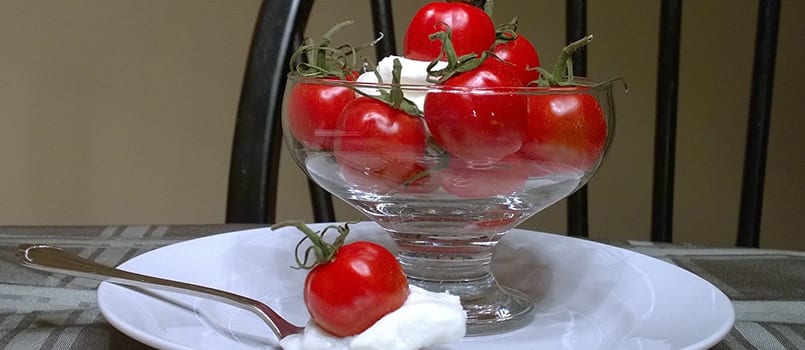When I was 10, I was a fundamentalist.
It was then that I learned in science class that the tomato was a fruit. It’s likely that, armed with this new information, I sallied forth to do battle against ignorance—or, rather, against the ignorant. I’d approach my unsuspecting victim and say, “Tomatoes are fruit.” Predictably, they’d object. Then with the delight of the right, I’d pummel them with the fact that fruit is the part of a plant that has the seeds in it. Tomatoes have seeds in them. “Therefore,” I’d declare victoriously, “a tomato is a fruit.”
I was a fundamentalist because I saw things as simple and certain what were in reality rather more complex.
At least with respect to the classification of tomatoes, I am no longer a fundamentalist. I no longer think that tomatoes can simply be classified as a fruit. I can hear all the 10-year-old scientists arguing, “It can’t be both!” From their perspective, they’d be absolutely right. Because the perspective from which they are viewing the world loves clean and simple categories. But I now think that perspective is a little too limited.
If the tomato was a fruit, wouldn’t it make perfect sense to put salsa on an ice cream sundae? Wouldn’t we pull up our noses at the idea of putting sauced tomatoes on hot pasta? The categories just don’t work.
I realize in this case we are just dealing with labels, but like most grade 5 students, our culture has loved classifying complex reality into simple categories for a very long time—it makes things a lot easier. Consider the categories of faith and reason. They used to be complementary, but in the last few hundred years we’ve separated them.
Dividing faith from reason has impoverished both; reason has been reduced to fact and faith to irrationality. Divorced from faith, something is rational only if you can find it with a telescope or a microscope. You cannot investigate the spiritual reality with any scientific approach because these are equipped only to study the physical world.
Would it be irrational to believe in a spiritual realm if it was real?
I believe that spiritual influences are real. Except for a very small percentage of people (who lived in the last 200 years, all in the West), every other human being has also come to the same conclusion.
Somehow we have ended up with the idea that there is a difference between what we believe and what we know.
Even if I know that the tomato is a fruit, I also believe, and therefore also know, that it’s usually better to treat it as a vegetable.
Here’s my recipe for a tomato cobbler: “Clear the preparation area of all the sugar, butter, flour, milk. Then, in a large pot, combine 6 cups of tomatoes with ground beef, onions, mushrooms, bell peppers and spoon over cooked pasta.”






WHAT DO YOU THINK?
Well put.
agreed – well put. Man – you’re tough on a dualistic worldview … keep preachin!